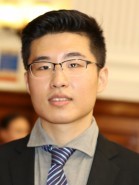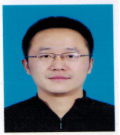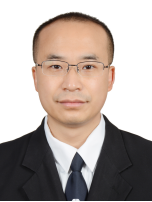
Speakers

Prof. Cong Lin
Zhejiang University, China
Experience: Jason Cong LIN is "ZJU 100 Young Professor" and Director of Philosophy of Education Division in the Department of Education at the Zhejiang University. He holds a PhD from the Faculty of Education at the University of Hong Kong. He was also a Fulbright Scholar at Harvard University. His research interests include philosophy of education, civic/moral/multicultural education, identity, and politics in education. He is the author of Multiculturalism, Chinese Identity, and Education: Who Are We? (Routledge, 2022). His research has been published in well-regarded journals, such as Globalisations, Societies and Education, Asia Pacific Journal of Education, Educational Philosophy and Theory, and Studies in Philosophy and Education. He has co-edited a book about teacher education and written chapters in The Springer Encyclopedia of the United Nations Sustainable Development Goals.
Title: Chinese Patriotism: Inward and Outward Perspectives
Abstract: Updating.

Prof. Zhonggen Yu
Beijing Language and Culture University, China
Experience: Yu Zhonggen, ORCID: https://orcid.org/0000-0002-3873-980X, is a professor at the School of English, Beijing Language and University. He is also a Ph.D. supervisor and a postdoctoral fellow in English linguistics. He received his PhD and Master's degree in law from Tsinghua University and Master's degree in foreign language and applied linguistics from Southeast University. His research interests include intelligent education. He has published more than 180 academic papers, including over 50 in SSCI, over 40 in EI, and over 70 in ESCI, SCOPUS, and EI. He has presided over and completed several National Social Science Fund China Academic Translation Projects, Ministry of Education Humanities and Social Science Youth Projects, Jiangsu and Zhejiang Province Social Science Fund Planning Projects, Beijing Higher Education "Undergraduate Teaching Reform and Innovation Projects", Municipal and School-level projects. He is an external reviewer for more than 20 SSCI-indexed journals. He has participated in teaching contests multiple times and received national, provincial, and university-level awards. In 2016, he received the first prize of the University Teaching Achievement Award from Hohai University. In 2018, he was identified as a third-level training object of the "333" Project in Jiangsu Province. In 2019, he won the first prize of the Information-based Teaching Competition from Beijing Language University. In 2020, he was awarded the "Smart Teaching Star" title by the Online Education Research Center of the Ministry of Education. He is currently the Founding Editor-in-Chief of International Journal of Technology-Enhanced Education (IJTEE) (2022-); Editor-in-Chief of Forum for Linguistic Studies (Scopus) (2023.5-); Academic Editor of Education Research International (SCOPUS/ESCI indexed) (2021-); Associate Editor of International Journal of Adult Education and Technology (IJAET) (Scopus/ESCI) (2023.1-); Editor of Technology, Pedagogy and Education (SSCI, Q1, 2022 IF: 4.9); Editor of "Languages" (Scopus/ESCI) (2022.5.18-); Editor of "Education Sciences" (Scopus/ESCI) (2022.11.8-); Editor of International Journal of Game-Based Learning (IJGBL) (2022.11.23-); and Co-Editor in Chief of the International Journal of Education 【International Journal of Education, Open Access】
Title: A meta-analysis of eight factors influencing MOOC-based learning outcomes across the world
Abstract: With the development of information technologies, many learners opt to stay home receiving various forms of online education such as massive open online courses (MOOC). However, many learners and instructors complain that MOOC-based learning effectiveness has been dampened by many factors. Through a meta-analysis using Stata/MP 14.0, this study reveals that MOOC-based learning outcomes can be significantly influenced by eight factors, i.e. behavior intention, learning engagement, students’ motivation, perceptions, satisfaction, performance, self-regulation, and social networks across the world. Future research could reveal more influencing factors pivoting on the forum improvements, as well as the effect of social presence on MOOC-based learning outcomes.

Prof. Guiyun Guan
Northwest Minzu University, China
Experience: I am a professor, doctor and master's supervisor in the fields of high education and linguistics. I began to work in School of Foreign Languages of Northwest Minzu University in 2007 after getting my master's degree. In 2014 I was promoted to be Associate Professor. In October, 2015, I went to Utah State University as a visiting scholar and stayed there for one year. In 2018, I began to study for my doctor's degree and in 2021 I got my doctor's degree smoothly. In 2020, I was promoted to be professor. So till now, I have been doing research in the field of education and linguistics for many years. I've published more than thirty papers in the domains, five textbooks as the chief editor, and a monograph independently. I also obtain many rewards and titles of honor: 2022 Gansu Young Teacher Achievement Award, 2021 Young Teacher Achievement Award of Northwest Minzu University, 2015 Top Ten Best Teachers of Northwest Minzu University, 2013 Top Ten Best Young Teachers.
Title: Research on Foreign Language Smart Education under the Situation of Educational Integration and Innovation
Abstract: The rapid development of internet and information technology strongly requires the integration and innovation of smart education and traditional education, which is also the inevitable trend of education and teaching reform. Smart education of a foreign language, has gradually become one of the concerns of scholars. The problems of foreign language smart education include knowledge barrier, data island, low utilization rate of smart classroom, disconnection between curriculum and smart foreign language teaching, lack of adaptive learning ability of students, and so on. Based on these problems, programs such as strengthening the construction of new liberal arts, opening the source achievements, sharing resources, setting personalized teaching, multi-interaction, and optimized model of smart foreign language teaching are put forward so as to better and more effectively carry out foreign language smart teaching.

Assoc. Prof. Haoliang Wang
Dalian Maritime University, China
Experience:
Haoliang Wang, associate professor of school of marine engineering, Dalian Maritime University, master's tutor, teaching master of Liaoning province, young star of science and technology of Dalian city, and a candidate of Hanhai project of Dalian Maritime University. He is mainly engaged in teaching and scientific research in the field of marine electromechanical systems, unmanned underwater vehicle guidance, control and coordination. He is in charge of the national first-class undergraduate course (online first-class course), won the second-class prize of Liaoning Undergraduate Teaching Achievement Award, the first prize of Dalian Maritime University Undergraduate Teaching Achievement Award, the first prize of Teaching Competition, the first prize of Teaching Excellence Award, the excellent prize of Dalian Teaching Competition, the excellent nautical young teachers' award. He has published 8 teaching papers, presided over 13 undergraduate and postgraduate teaching projects, and published 8 textbooks.
Title: Construction of Open Online Courses System and Its Application in Marine Engineering Major
Abstract: In order to explore the construction mode of open online courses suitable for marine engineering major and further improve the quality of education and teaching, a high-level, innovative, and challenging open online courses system is proposed based on the course characteristics of marine engineering major and the needs of talent cultivation. Domestic sea-related universities will be organized to design an overall architecture of the open online courses system for marine engineering major, and an inter-university collaborative innovation mechanism will be formed, such that a new way to promote the construction of the open online courses system for marine engineering major is explored.